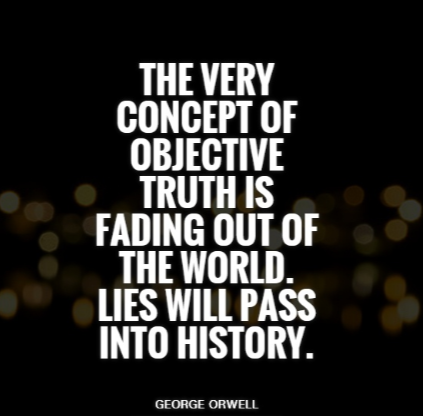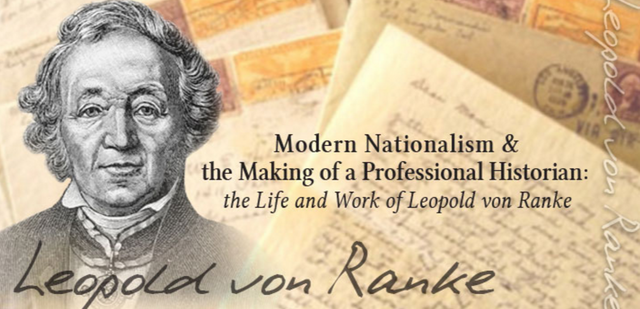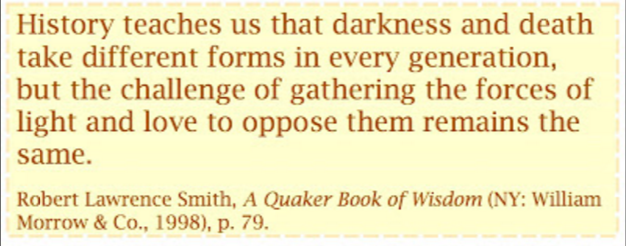Reflecting on the discipline of History - Part 1
Disclaimer: This is a four-part series that dispels how the discipline of History should be interpreted and taught in schools.
History is valuable as an intellectual discipline because it helps us understand ourselves, the world we live in, and the people around us. History allows an intellectual individual to gain a questioning mind and the ability to test assertions made by individuals in the present and in the past, and of ourselves as well. We cannot understand the world we live in at the present moment exclusively in a contemporary manner unless we have an appreciation for ourselves and other cultures without an understanding of the past. Without a great appreciation for understanding the past, we deprive ourselves of an enormous source of information and understanding that could help us endure the struggles of the present. Fundamentally the goal of studying history is to obtain the objective truth of the past which in turn allows you to better understand the present, so then you can better prepare and forecast the future. The overarching flow and awareness of the past can help us confront major problems seen in contemporary society and this understanding of how human beings make choices in the past and analyze what worked and what didn’t to make it more productive and informed society in the present world.
In practice, the main objective of the historian is to take past historical information and put it together in the orderly fashion that is meaningful and useful. At the end of this exhausting process, the whole story can never be obtained. When considering the objective truth, as much as a historian would like to think that he has obtained it, there is no way they can possibly make this assumption. No historian can have the last word and make their narrative become the absolute truth in an objective manner because there is no definitive truth that all historians can agree upon on a given subject. No matter how well a historian constructs a narrative or how persuasive he reconstructs the evidence gathered from various sources, his analysis will never be the last because of various inferences made by other historians and the possibility of having said analysis being challenged.
The delicate process of extrapolating evidence from primary source documents can lead historians to gather motives of the past in the best way possible and there are possibilities that some sources may not be truthful making verification even more difficult. History does not lend itself to be a linear subject, nor does it allow itself various outcomes to the past as science disposes of various outcomes in experimentation, but the history of the open-ended subject with many possibilities of how a one-time run unfolded and the possibilities that caused it. When a historian focuses on a certain time period or event in history they must decide on the scope of their canvas. Deciding on what factors to obtain information from either a micro study or a macro study of the reconstructed history while adhering to the fundamental methodology of “objective, variable and clearly communicable truths,” to form their interpretation of the past while following professional standards. While constructing this history in an objective manner the historian must position himself outside the narrative while giving his interpretation within the social constructs of the past. To extinguish a historian's bias and predisposed assumptions of the past one must “cease to be associated with our fears, our respects, our aspirations-our emotional nature” for it’s our human nature that skews the narrative and predisposes the historian in a position of falsehood. Through the process of objectivity, a historian tries to seek the noble dream of the objective truth. but never truly obtain it in the end in its absolute form.
The founder of the modernist source-based history in the 19th century is none other than German historian Leopold von Ranke. Before the work of Ranke, there were no history professors and people only studied the classics, theology, the humanities, and philosophy. History was not separated from those professions. Ranke work in the field of history has been revered by many worldwide as the prominent in his field for shaping the fundamental procedures and ideas that have become the cornerstone of the profession. The methodology used by Ranke focused mainly on the concept of archival research centered on primary sources. With the methodology presented by Ranke, he essentially ushered in the era of scientific history which emphasized the reliance on primary and secondary sources as evidence of past events and a criticism of those sources. Ranke felt that if a historian was to accomplish his main goal of extracting the “essences” of a particular subject or an event that allows you to ask analytical questions that help the historian to draw conclusions on “judging the past” by giving a detailed argument of the record. This was a powerful change in the way history was studied and interpreted because it led to the discipline of history having an emphasis on empiricism. Ranke was waging an ideological battle against historicism, Hegelianism, and antiquarianism which perceived history as a philosophical sense rather as something that’s “objective, verifiable and clearly communicable truths” that become understood and questioned by other historians.
Source: Novick, Peter. That noble dream: The 'objectivity question' and the American historical profession. Vol. 13. Cambridge University Press, 1988. P. 33.
Novick, Peter. That noble dream. p. 34.
Novick, Peter. That noble dream. p. 28.
Novick, Peter. That noble dream. p. 34.
All proceeds from upvotes on this post are going to more Steem Power.
Also, if you're looking for a long-term investment try out cloud mining with Genesis-Mining.com and their Sha-256 bitcoin mining LIFETIME contract.
Use the promo code "1jibey" for 3% off your order. It's a great opportunity, check it out!



I enjoyed this. It reminds me of an essay by CS Lewis called, On the Reading of Old Books. Nice work @elumni, I am following your blog now.
Thank you, I appreciate it! History is an objective subject that needs to be interpreted as such, that is why I felt a need to write this.